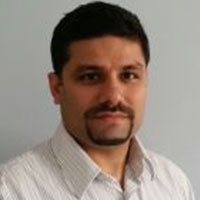Despite a history of widely contested and transparent elections, and presence of vibrant and open media, an increasing number of criminally accused politicians are being elected in India. Based on an analysis of elections to State Legislative Assemblies during 2004-2008 in 20 states, this column finds that electing a politician accused of a serious or financial crime adversely affects economic growth and public service delivery in the constituency.
Does the quality of an elected politician affect the economic development outcomes for their constituency? In recent research, we answer this question by looking at the unique setting of India where an
While the election of criminally accused candidates to public office is a matter of concern in general, this is particularly problematic for India. This is so because large quantities of funds are distributed by the government through a wide variety of interventions and programmes, and these are often plagued by costly scandals causing losses worth hundreds of billions of dollars (Sukhtankar and Vaishnav 2015). This problem is exacerbated by a severely understaffed judiciary and police force, resulting in extremely slow justice delivery. The result is a situation in which an influx of criminally accused politicians could be especially costly.
We estimate the causal effect of electing criminally accused politicians on the subsequent economic activity of their constituencies. We focus on elections to Indian State Legislative Assemblies in 20 states held from 2004 to 2008. Data from the Election Commission of India (ECI) allows us to not only identify criminally charged candidates but also differentiate between the types of charges and the number of outstanding cases. Since data on local economic conditions (that is, gross domestic product (GDP)) are not available for State Assembly constituencies, we instead rely on satellite data on the intensity of night-lights to measure economic activity at the State Assembly constituency level. Satellite data have been used as a proxy for economic activity (Bleakley and Lin 2012, Henderson et al. 2012, Hodler and Rashky 2014, Storeygard 2014) at both the national and sub-national level. We also use the number of incomplete road projects as a proxy for public good delivery to evaluate the aggregate economic costs of electing lower quality (criminally accused) politicians.
How do criminally accused politicians impact economic activity?
Our analysis examines constituencies with close elections - we compare constituencies which elect a criminally accused candidate with a narrow margin, with those that elected a non-accused candidate with a narrow margin. We find a strong adverse effect of narrowly electing a criminally accused politician on economic outcomes: on average, this resulted in roughly 22 percentage point lower yearly growth in the intensity of night-lights than in the comparison constituencies. When we convert this to GDP growth1, this is roughly equivalent to roughly 2.3-6.5 percentage point lower GDP growth per year. To put this in perspective, India experienced approximately 6% GDP growth during this period. A constituency which narrowly elected a criminally accused candidate would have experienced only 5.61-5.86% GDP growth per year (as compared to the 6% otherwise). Since this is a yearly estimate, this would compound over the politician’s entire term.
As we discuss below, these effects also extend to our proxy for public good provision. These results show the detrimental effects of electing low quality (criminally accused) politicians in terms of the economic development of their respective constituencies. The foregone growth caused by electing criminally accused politicians must also impact poverty reduction and other micro-level development outcomes.
Do types of accusations matter?
If the effect is being caused by the type of politician (that is, being criminally accused), the type of charge should matter. This is confirmed by the data. Serious and financial charges2 have a negative impact larger than that of the average charge. In contrast, the election of politicians accused of only non-financial and non-serious
Where are the costs highest?
The costs of electing criminally accused politicians are concentrated in states which are less developed and have higher levels of corruption. States with weaker judicial, police or political institutions – the so-called BIMAROU - states - seem to face the highest cost burden of electing criminally accused politicians. We find insignificant results of electing criminally accused politicians in
When do the costs arise?
We find that the election of a criminally accused politician does not instantaneously result in lower levels of economic activity. Rather, these costs take time to develop. This is because politicians need to collaborate with local bureaucrats in order to engage in corrupt behaviour (Iyer and Mani 2012). Consequently, a certain amount of time is necessary for corrupt politicians and bureaucrats to form a nexus and to engage in corrupt activities. So we find the negative effects of electing a criminally accused politician to be apparent only in the later years of a politician’s term. Additionally, the effects of neglected public infrastructure such as roads, etc., may take some time to slow down economic activity.
The big picture
These results show that the election of criminally accused politicians, and more generally,
Although we study a particular context, lower quality politicians are believed to be pervasive in many developing countries. While the underlying cause is often context-specific and may range from caste politics to tribal and ethnic voting, we believe that our analysis is suggestive for other contexts as well.
A column based on the underlying research has appeared on VoxEU.
Notes:
- Details on the methodology used are in the paper.
- The following are included under serious criminal charges: (i) maximum punishment for the offence committed is of five years or more (ii) offence is non-bailable (iii) offences pertaining to electoral violation (iv) offences related to loss to exchequer (financial charges) (v) offences related to assault, murder, kidnap or rape (vi) offences mentioned in Representation of the People Act (vii) offences under Prevention of Corruption Act (viii) offences related to crimes against women.
- The BIMAROU states are four northern Indian states: Bihar, Madhya Pradesh, Rajasthan, Odisha, and Uttar Pradesh. These remain some of the least developed states of the country. BIMAROU has a resemblance to a Hindi word "Bimar" which means sick.
- Bleakley, Hoyt and Jeffrey Lin (2012), “Portage and Path Dependence”, The Quarterly Journal of Economics, 127: 587-644. Available at: http://www.nber.org/papers/w16314.pdf
- Burgess, Robin, Remi Jedwab, Edward Miguel, Ameet Morjaria, and Gerard Padró
i Miquel (2015), “The Value of Democracy: Evidence from Road Building in Kenya”, American Economic Review, 105 (6): 1817–51. Available at: http://www.nber.org/papers/w19398.pdf - Chauchard, S (2014), ‘Is ‘Ethnic Politics’ Responsible for ‘Criminal Politics’? A Vignette Experiment in North India’, Working Paper.
- Henderson, J Vernon, Adam Storeygard and David N Weil (2012), “Measuring Economic Growth from Outer Space”, American Economic Review, 102 (2): 994-1028. Available at: http://www.nber.org/papers/w15199.pdf
Hodler , Roland and Paul A Raschky (2014), “Regional Favoritism”, Quarterly Journal of Economics, 124 (2): 995-1033.- Iyer, Lakshmi and Anandi Mani (2012), “Traveling Agents: Political Change and Bureaucratic Turnover in India”, The Review of Economics and Statistics, 94 (3): 723- 739.
- Prakash, N, M Rockmore and Y Uppal (2015), ‘Do criminally accused politicians affect economic outcomes?
Evidences from India’, Households in Conflict Network (HiCN), The Institute of Development Studies, University of Sussex. - Sukhtankar, S and M Vaishnav (2015), ‘What do we know about corruption in India?’, Ideas for India, 16 September 2015.
- Sukhtankar, S and M Vaishnav (2015), ‘Corruption in India: Bridging Research Evidence and Policy Options?’, Carnegie Endowment for International Peace, 1 September 2015.
- Storeygard, A (2014), ‘Farther on Down the Road: Transport Costs, Trade and Urban Growth in Sub-Saharan Africa’, Working Paper.
- Wade, Robert (1982), “The System of Administrative and Political corruption: Canal Irrigation in South India”, Journal of Development Studies, 18 (3): 287-328.




 15 January, 2016
15 January, 2016 







Comments will be held for moderation. Your contact information will not be made public.